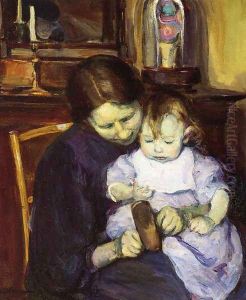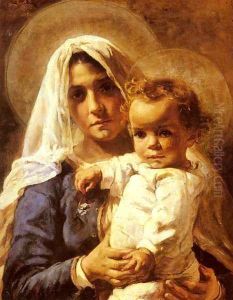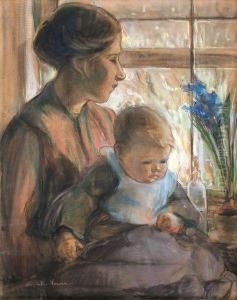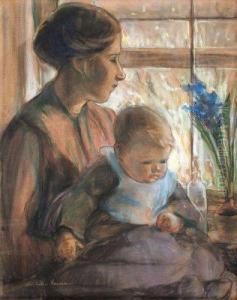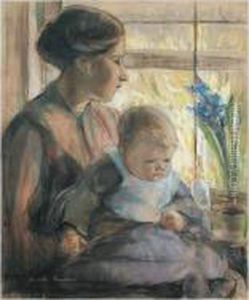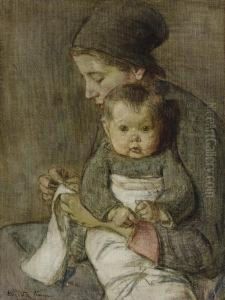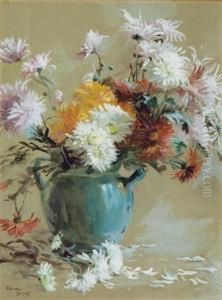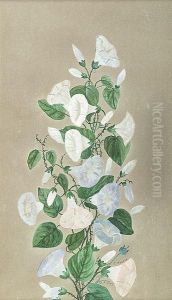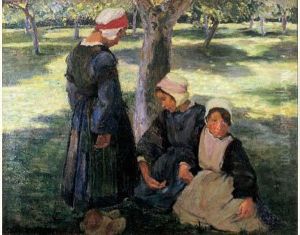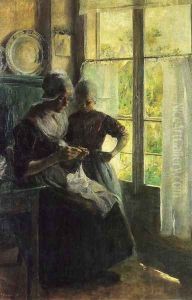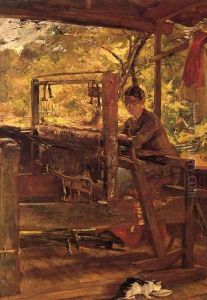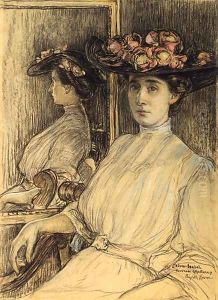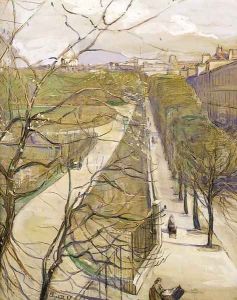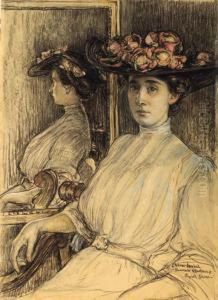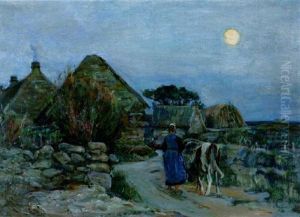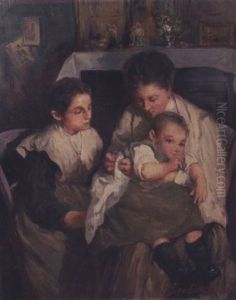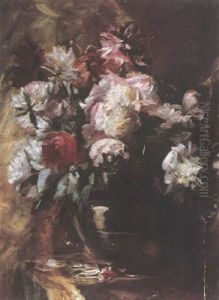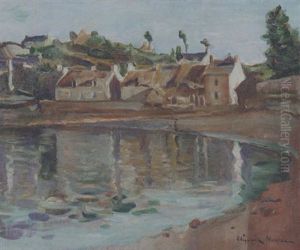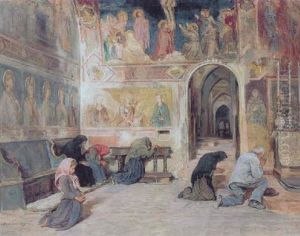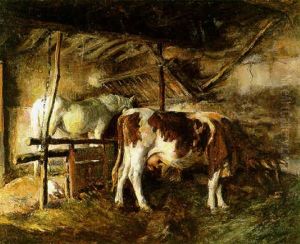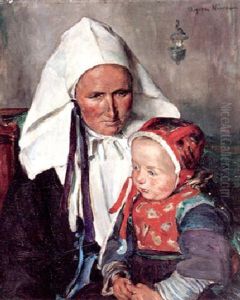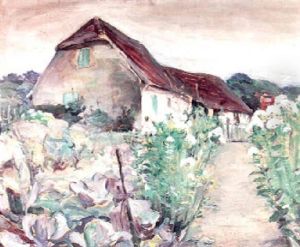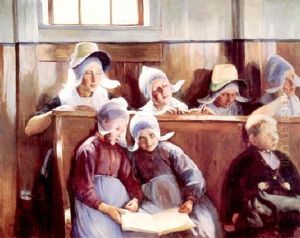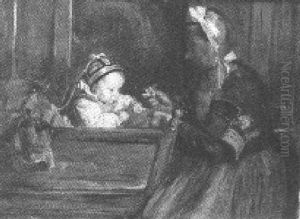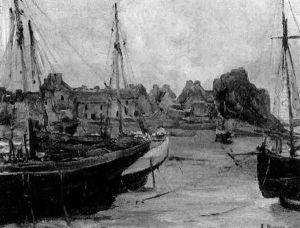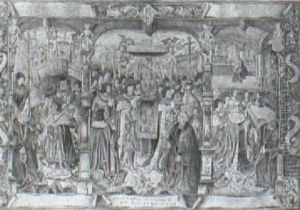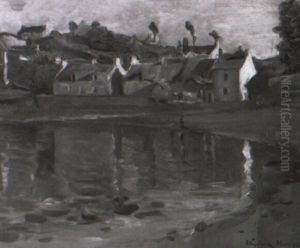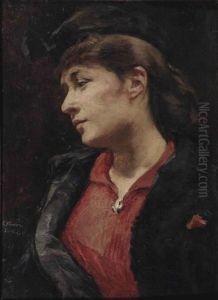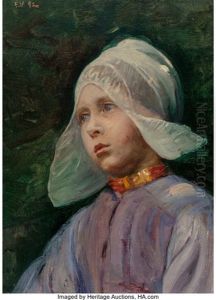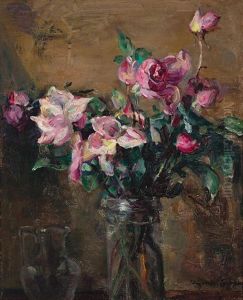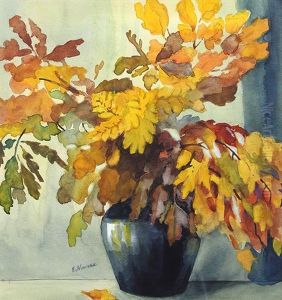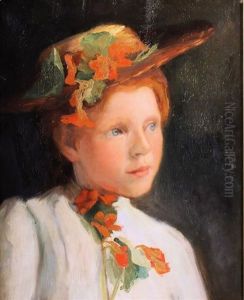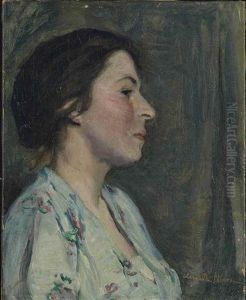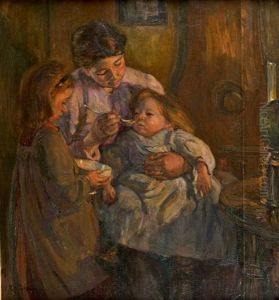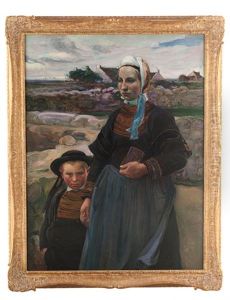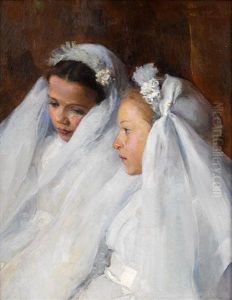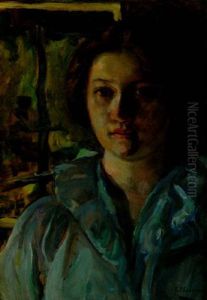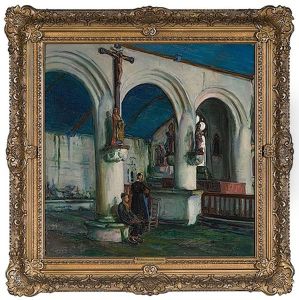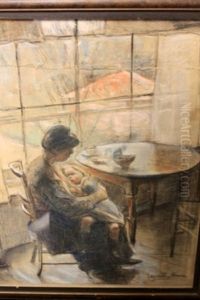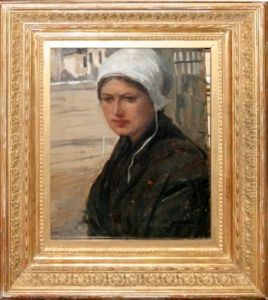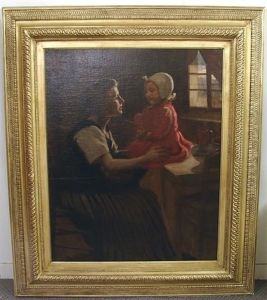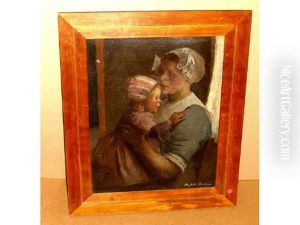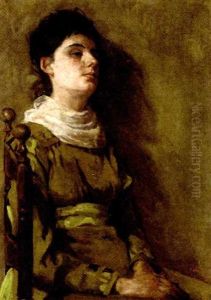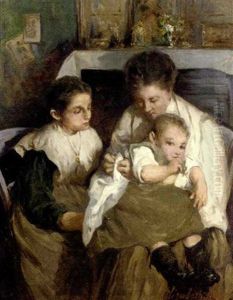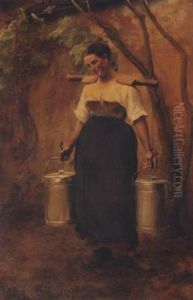Elizabeth Nourse Paintings
Elizabeth Nourse was a notable American painter born on October 26, 1859, in Mt. Healthy, Ohio, near Cincinnati. She was one of the first American women artists to achieve international recognition in the late 19th and early 20th centuries. Nourse's upbringing in a large family of ten children, coupled with the early loss of her mother, deeply influenced her artistic vision, which often centered on themes of family, women, and children, reflecting her own experiences and observations of domestic life. Nourse's artistic talent became evident at a young age, and she pursued formal education at the McMicken School of Design in Cincinnati, now known as the Art Academy of Cincinnati, where she excelled, particularly in the study of fine arts and painting. Despite the societal expectations of her time for women to prioritize marriage and family over professional ambitions, Nourse was determined to pursue a career as an artist. This resolve led her to move to New York, and later to Paris in 1887, where she would spend most of her adult life. Paris, being the epicenter of the art world at the time, offered her the exposure and environment conducive to her artistic growth. In Paris, Nourse quickly became part of the vibrant art scene and was accepted into the prestigious Société Nationale des Beaux-Arts, a recognition rarely accorded to women or foreigners at the time. Her work was characterized by its realism and empathy, often focusing on the lives of women and children, rural landscapes, and scenes of everyday life. Unlike many of her contemporaries who were drawn to the Impressionist movement, Nourse maintained a realist approach to her subjects, which resonated with both critics and the public. Throughout her career, Nourse's work was exhibited widely, including at the Paris Salon, one of the most esteemed art exhibitions in the world. She was also one of the few female artists to be awarded a solo exhibition at the Salon. Her achievements earned her numerous awards and recognitions, and in 1900, she was honored with a silver medal at the Exposition Universelle in Paris. Despite her success abroad, Nourse remained deeply connected to her American roots, often returning to the United States to exhibit her work and visit family. Elizabeth Nourse's commitment to her art, along with her pioneering spirit as a woman in the male-dominated art world of her time, left a lasting legacy. She passed away on October 8, 1938, in Paris. Today, her work is celebrated for its beauty, emotional depth, and sensitive portrayal of women's lives and is held in numerous prestigious collections and museums worldwide.
